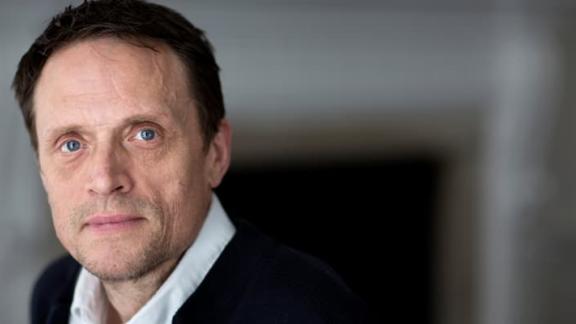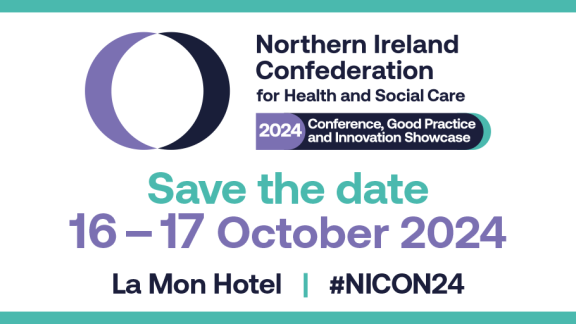NHS leaders are entering dangerous territory as election nears

Matthew Taylor explains how the NHS leaders face mounting pressure from the government’s productivity demands amid insufficient support and funding, risking short-term fixes over long-term solutions.
This article first appeared in the HSJ on 14 March 2024.
Two developments in the last week have encapsulated the dangerous territory NHS leaders find themselves in during this election year: The Chancellor’s renewed focus on productivity and clampdown on 'waste', alongside exhortations from the centre for leaders to work harder to achieve targets that are proving elusive.
In essence the government is basing both funding and performance expectations on an improvement in productivity without giving the NHS the means to achieve that improvement. With the public identifying the NHS as its top concern, the danger is that politicians turn to a combination of magical thinking about the power of exhortation and targets and blaming health leaders if the service falls short. We’re already starting to see the return of behaviours designed to give the impression of gripping the problem yet doing little to solve the underlying causes of these complex and systemic issues.
Clearly, few would argue that the NHS isn’t facing a productivity challenge. As this influential Institute for Government report makes clear, there is an issue, especially in terms of the ratio of staffing to activity in acute settings. But the report, written by two former advisers to Conservative cabinet ministers also identifies the complexity of the challenge and how vital investment is – particularly in capital.
Despite some progress, there remains an unexplained productivity gap – we are delivering less output with more staff and more resources. But there are mitigating reasons for some of this disparity, and productivity figures can be simplistic.
Not only do they fail to distinguish between activity and outcomes, but changes reflect multiple factors including patterns of demand, staff mix and morale, lack of management, the burden of regulation, and rising expectations. There is also a danger that when staff, whose morale remains fragile, hear a productivity narrative that is too shrill or narrow they feel blamed, and that the solution will be job cuts and greater pressure.
Bigger productivity gains will only be realised if crumbling estates are addressed too
The detail of the Spring Budget announcement encapsulated the problem – the £3.4 billion of extra capital is much-needed and to be welcomed but it does not kick in until 2025/26 and it only covers technology. Bigger productivity gains will only be realised if crumbling estates are addressed too; a problem exacerbated by regular raids on the capital budget to fund day-to-day cost pressures (around £1 billion in the latest supplementary estimates from the Treasury).
Images of new computers sitting in outdated and sometimes dangerous buildings could become a symbol of the failure of joined-up policy. And as the Institute for Fiscal Studies (IFS) said in its Budget response, the extra spending announced is relative to a baseline that doesn’t exist. It will be for whoever is elected to deliver and fund this in the next Spending Review.
All of this matters because the NHS went into the budget already operating at the outer limits of what is possible to deliver, with the much-supported Long Term Workforce Plan predicated on the kind of consistent productivity savings (1.5-2 per cent) that have eluded the service for decades.
Extra day-to-day cost pressures create deficits which in turn lead to raids of capital budgets. For 16 months NHS leaders, staff and patients have been dealing with the costs and consequences of industrial action. We still find ourselves in a situation where managers are spending far too much time rewriting rotas and rescheduling lists rather than focusing on the work they want to deliver to improve service design and delivery. This is a further handbrake on productivity improvements.
With the £2.5 billion revenue settlement for 2024/25 announced in the budget – at best flat in real terms against a backdrop of significant deficits and universal pressures – we can expect another very tough year ahead. And one with a strong possibility of needing winter top-ups as we’ve seen many times. As the IFS said, the budget allocation is the minimum needed to prevent a real-terms spending cut between this year and next.
Of course, there must be accountability and the NHS must be doing – and be seen to be doing – all it can to recover the constitutional standards. Every NHS leader I speak to knows that and wants to improve performance. But top-down diktats for leaders to hit, for example, the interim 76 per cent target to treat patients within four hours in accident and emergency by the end of March miss the point.
The risk is that we crank up the pressure in the hope of a different outcome, while not addressing the underlying causes or giving NHS leaders and their teams the right support
In the last 24 hours, this has been compounded by concerns over how we best incentivise providers to improve performance, with extra capital funding now being made available to the 'best' performing trusts and those who improve their performance the most.
The risk is that we crank up the pressure in the hope of a different outcome, while not addressing the underlying causes or giving NHS leaders and their teams the right support.
More widely, this is another reminder of the unhelpful short-termism we are seeing in national policy. There is a broad consensus among NHS leaders and health experts that long-term financial sustainability and better patient outcomes depend on shifting resources 'upstream' into preventive, primary and community services. But this is made much more difficult when the focus of central policy is once again almost exclusively on the limited potential of intensifying existing ways of working.
This may be the inevitable price we pay in an election year, but at some point, whoever is elected next will need to lift their heads beyond the short-termism that risks impeding the NHS’s progress.
Matthew Taylor is chief executive of the NHS Confederation. You can follow Matthew on X @ConfedMatthew



